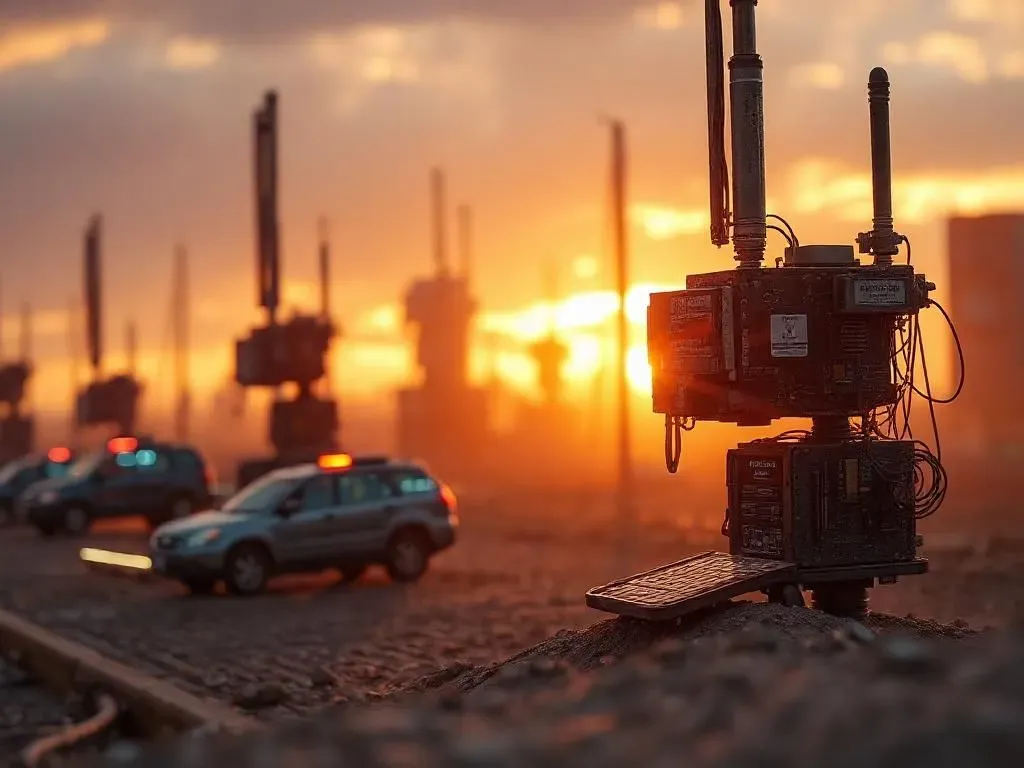مقدمة
اللمعان ليس دائمًا ذهبًا
نسمع كثيرًا عن كيفية ثورة التكنولوجيا في كل شيء—تطبيقات أسرع، ذكاء اصطناعي أذكى، طاقة أنظف. لكن خلف الكلمات الرنانة والأضواء الساطعة يكمن جانب مظلم. جانب نادراً ما نتحدث عنه. حان الوقت لكشف الحقائق الصادمة حول التقنيات التي تشكل مستقبلنا.

جدول المحتويات
1. الذكاء الاصطناعي: قوي لكنه متحيز
الحقيقة التي لا يخبرك بها أحد
يمكن للذكاء الاصطناعي تحليل البيانات أسرع من أي إنسان—لكن يمكنه أيضًا تعزيز التحيزات الضارة. الخوارزميات المدربة على بيانات غير دقيقة يمكن أن ترفض طلبات التوظيف بشكل غير عادل، أو تمنح أو ترفض القروض، أو حتى تحدد المشتبه بهم بشكل خاطئ.
مشاكل الصندوق الأسود
غالبًا لا نعرف حتى كيف يتوصل الذكاء الاصطناعي إلى قراراته. هذا النقص في الشفافية يمثل قلقًا كبيرًا، خاصة في مجالات الرعاية الصحية والعدالة الجنائية.
🔍 ذات صلة: كيف تعيد اتجاهات التكنولوجيا الحالية كتابة عالم الغد بهدوء
2. الأتمتة واستبدال الوظائف
ثمن الراحة
بينما تعزز الأتمتة الكفاءة، فإنها أيضًا تقضي على ملايين الوظائف. السائقون، عمال المخازن، وحتى مساعدو المكاتب يتم استبدالهم بالآلات.
وهم اقتصاد العمل الجزئي
يتحول العديد من العمال المستبعدين إلى العمل الجزئي—غالبًا بأجور منخفضة ودون مزايا. خلقت التكنولوجيا المرونة، لكنها على حساب الأمان الوظيفي.
3. البلوكتشين ليس آمنًا كما تعتقد
ما وراء الضجة حول العملات الرقمية
نعم، البلوكتشين لا مركزي—لكنه ليس محصنًا ضد الاحتيال. فقد تم فقد مليارات في عمليات الاحتيال والمخططات المالية التي تظهر كمشاريع مشفرة شرعية.
الاهتمامات البيئية
يستهلك تعدين البيتكوين وحده طاقة أكثر من بعض الدول. ليست كل تطبيقات البلوكتشين صديقة للبيئة أو أخلاقية.
4. الأجهزة الذكية التي تتجسس عليك
هاتفك يراقبك
من التلفاز الذكي إلى جهاز تتبع اللياقة، الأجهزة تجمع بياناتك باستمرار. حتى محادثاتك قد تُسجل لتحسين "تجربة المستخدم".
رأسمالية المراقبة
تستثمر الشركات سلوكك واهتماماتك وحتى موقعك—غالبًا دون موافقة واضحة.
5. التزييف العميق: الرؤية لم تعد تصديقًا
أزمة التلاعب
يمكن لتقنية التزييف العميق إنشاء فيديوهات مقنعة لأشخاص يقولون أشياء لم يقولونها أبدًا. هذا قد يدمر السمعة أو يؤثر في الانتخابات.
الثقة هي الضحية الحقيقية
مع ازدياد واقعية التزييف العميق، ندخل عصرًا لم تعد فيه الأدلة البصرية موثوقة.
6. الإدمان على التكنولوجيا: مصمم للإقناع
تطبيقات تخطف عقلك
هل تساءلت يومًا لماذا من الصعب وضع هاتفك؟ التطبيقات الاجتماعية مصممة لتكون إدمانية، باستخدام الإشعارات، والإعجابات، والتصفح اللانهائي لتحفيز الدوبامين.
الأثر على الصحة النفسية
يرتبط الإفراط في استخدام الشاشات بالقلق والاكتئاب وسوء النوم، خاصة بين المراهقين والأطفال.
7. الفجوة الرقمية تتسع
الوصول ليس متساويًا
بينما يتمتع البعض بالإنترنت فائق السرعة والمنازل الذكية، لا يزال مليارات الأشخاص يفتقرون إلى الاتصال الأساسي. هذه الفجوة تزيد من عدم المساواة عالميًا.
تكنولوجيا تترك الناس وراءها
غالبًا ما تتطلب الأدوات الجديدة أجهزة باهظة أو معرفة تقنية، مما يهمش من لا يستطيعون شراءها أو فهمها.
8. الحروب المدعومة بالذكاء الاصطناعي والأسلحة الذاتية
من يسحب الزناد؟
الطائرات بدون طيار والروبوتات القاتلة لم تعد خيالًا علميًا. الدول تطور ذكاءً اصطناعيًا يمكنه تحديد متى وأين يهاجم بدون تدخل بشري.
لا أخلاق، لا مسؤولية
الآلات لا تستطيع فهم الأخلاق. عندما تحدث الأخطاء، من المسؤول—المبرمج أم الخوارزمية؟
9. اختراق البيانات وسرقة الهوية
معلوماتك موجودة بالفعل
تجمع شركات التكنولوجيا جبالًا من البيانات الشخصية—والمخترقون يعلمون ذلك. تحدث اختراقات كبرى بانتظام، تكشف كل شيء من كلمات المرور إلى السجلات الطبية.
ما تشاركه يمكن أن يضر بك
حتى التسريبات الصغيرة يمكن أن تؤدي إلى الاحتيال أو المطاردة أو التحرش. الخصوصية ليست مجرد ميزة—إنها حق يتم تقويضه.
10. الأخلاقيات تلحق بالركب
التكنولوجيا تتحرك بسرعة، والقوانين ببطء
بحلول الوقت الذي تنظم فيه الحكومات تقنية واحدة، يتم بالفعل نشر ثلاث تقنيات جديدة. لا يوجد توافق عالمي على كيفية إدارة الذكاء الاصطناعي أو البيانات أو التكنولوجيا الحيوية.
من المسؤول؟
غالبًا ما تعمل شركات التكنولوجيا الكبرى عبر الحدود وتؤثر في السياسة أكثر من المسؤولين المنتخبين. هذا اختلال في القوة نادرًا ما نسائل عنه.
الخاتمة
تعد التقنيات الناشئة بوعد لمستقبل أفضل—لكنها أيضًا تعيد تشكيل المجتمع بطرق لم نكن مستعدين لها. كمستخدمين ومبدعين ومواطنين، يجب أن نبقى على اطلاع، ونسائل ما يُقال لنا، ونطالب بالابتكار الأخلاقي. المستقبل موجود بالفعل، لكنه ليس موزعًا بعدالة—ولا مُدارًا بأمان.
الأسئلة الشائعة
1. لماذا يعتبر الذكاء الاصطناعي خطيرًا؟
يمكن أن يكون الذكاء الاصطناعي متحيزًا، وغامضًا، ويُستخدم في المراقبة أو الحرب. قوته غالبًا بلا رقابة.
2. ما هو أكبر خطر للبلوكتشين؟
الاحتيال، استهلاك الطاقة، وعدم وجود تنظيم هي المخاطر الرئيسية.
3. هل الأجهزة الذكية تتجسس علينا فعلاً؟
نعم. العديد منها يجمع بيانات عن سلوكك وصوتك وموقعك دون موافقة واضحة.
4. ما استخدامات التزييف العميق؟
يمكن استخدامها للمتعة البريئة—أو للخداع الجاد والاحتيال أو التلاعب السياسي.
5. كيف أحمي نفسي من مخاطر التكنولوجيا؟
استخدم كلمات مرور قوية، قلل مشاركة البيانات، استفسر عن أذونات التطبيقات، وابقَ مطلعًا على قوانين الخصوصية وتحديثات التكنولوجيا.
حقوق الطبع والنشر © :
www.rbasni.com
اشترك في النشرة الإخبارية، rbasni هو مصدر معلوماتك حول التكنولوجيا، الدورات، الكتب، إنشاء المحتوى، وطرق ذكية لكسب المال عبر الإنترنت. استكشف العالم الرقمي معنا!
